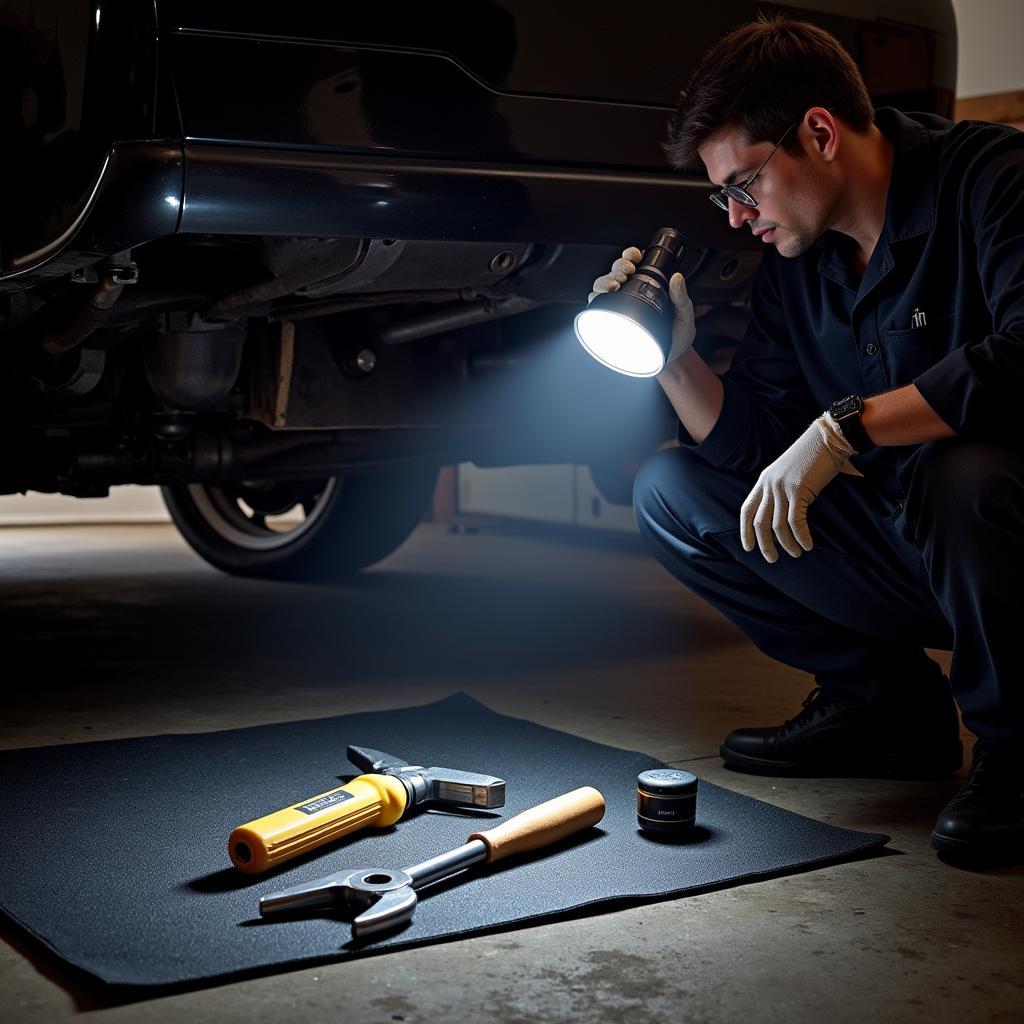Can You Fix Your Own Car? For many, this question sparks a mix of intrigue and apprehension. While some repairs demand professional expertise, others are surprisingly manageable with the right guidance and a bit of elbow grease. This guide explores the possibilities, empowering you to assess your capabilities and make informed decisions about your car maintenance and repairs. After reading this guide, you’ll have a better understanding of when to DIY and when to seek professional help.
Tackling car repairs yourself can be both rewarding and cost-effective. From simple tasks like changing a flat tire to more involved procedures, understanding your car’s mechanics can save you money and provide a sense of accomplishment. Check out our guide on how to fix basic car problems for some beginner-friendly repairs. However, it’s crucial to acknowledge the limits of DIY car repair. Complex electrical systems, intricate engine components, and specialized tools often require the skills of a trained mechanic.
Knowing Your Limits: DIY vs. Professional Repair
So, can you fix your own car? The answer depends on several factors: your mechanical aptitude, the complexity of the repair, the tools available, and the time you’re willing to invest. Simple tasks like replacing wiper blades or changing air filters are generally DIY-friendly. However, tasks involving the engine, transmission, or complex electrical systems are often best left to professionals.
Assessing the Repair
Before diving into any repair, thoroughly research the issue. Online forums, repair manuals, and video tutorials can provide valuable insights. Consider the tools required. Do you have them on hand, or will you need to purchase or borrow them? Accurately assessing the complexity of the repair and the resources required will save you time and potential frustration. Knowing how much it costs to fix a car seat, for example, can help you decide if it’s a DIY project or one for a professional.
 Assessing Car Damage for DIY Repair
Assessing Car Damage for DIY Repair
When to Call the Professionals
Certain repairs should always be handled by qualified mechanics. These include issues related to airbags, anti-lock brakes (ABS), and other safety-critical systems. Engine and transmission repairs, especially those involving internal components, require specialized knowledge and tools. If a repair involves complex diagnostics or requires specialized equipment, it’s best to seek professional help. For instance, auto & car rain-x fix might seem straightforward but requires careful application to avoid damaging the paint.
“Modern vehicles are increasingly complex,” says automotive expert, James Miller, ASE Certified Master Technician. “While DIY can be rewarding for simple repairs, tackling complex systems without proper training can lead to further damage and potentially compromise safety.”
Essential Tools for the DIY Mechanic
If you’re venturing into DIY car repair, having the right tools is essential. A basic toolkit should include:
- Screwdrivers (Phillips and flathead in various sizes)
- Wrenches (metric and standard)
- Socket set
- Pliers
- Jack and jack stands
- Torque wrench
- Multimeter
Investing in quality tools will not only make repairs easier but also last longer. As your DIY skills progress, you can expand your toolkit to include specialized tools for specific tasks. Want to know how much to fix an outside car door handle? Having the right tools can significantly impact the cost and ease of the repair.
Safety First
Safety should always be your top priority when working on your car. Always wear appropriate safety glasses and gloves. Never work under a car supported only by a jack. Use jack stands for secure support. Ensure the area is well-ventilated when working with chemicals or fluids.
“Safety is paramount when working on a car,” advises automotive engineer, Sarah Chen, PhD. “Always follow proper safety procedures and never attempt a repair beyond your skill level.” You might even find that fixing a car window regulator on your own is quite doable with the right resources.
Conclusion
Can you fix your own car? Absolutely, within reason. Understanding your limitations and approaching repairs with careful preparation is key. By accurately assessing the complexity of the repair, investing in the right tools, and prioritizing safety, you can successfully tackle many common car maintenance tasks and save money. However, remember that complex repairs often require the expertise of trained professionals. For further assistance or guidance on your car repair needs, connect with us at AutoTipPro. Call us at +1 (641) 206-8880 or visit our office at 500 N St Mary’s St, San Antonio, TX 78205, United States.




Leave a Reply